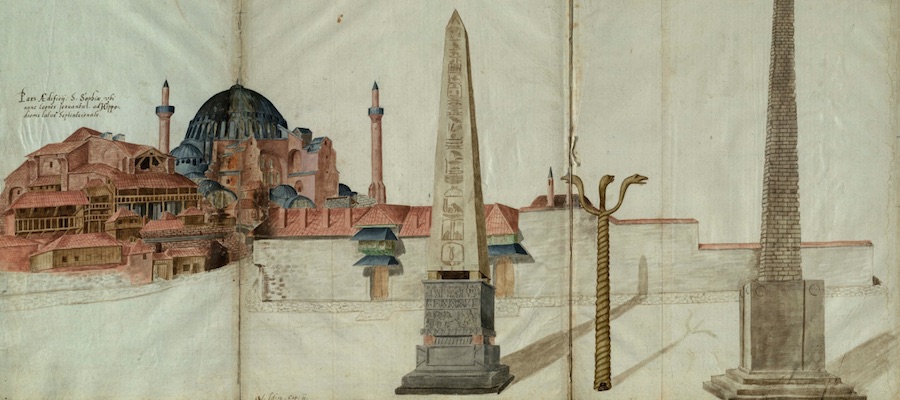Participants
Benjamin Anderson (Cornell University)
Constantinople: Court, Crowd, and Classicism
Assertion of Byzantine exceptionalism requires the concept of Byzantium as the “last ancient state,” where an ancient city serves as a medieval capital. For Constantinople to be meaningfully “ancient,” physical elements of the city (statues, porticoes, etc.) would have to serve as stable referents (for antiquity, Roman identity, etc.). However, cases of stability are themselves exceptional, and cannot be predicted by social position: classicism is not limited to the court, nor radical revaluation to the crowd (as standard accounts would have it). The “last ancient polis” better describes our expectations of Constantinople than the subjective perception of its medieval residents.
Darlene L. Brooks Hedstrom (Wittenberg University)
How Byzantine was Late Antique Egypt?
In contrast to the swiftness of the Arab conquest of Egypt, the Arabization and Islamization of Egypt was gradual. While scholars speak of the Arabization of Egypt, little discussion exists of the Byzantinization of Egypt. As Egypt evolved in tandem with other provinces that were enveloped in the empire of the Romans, Egypt's theological, ethnic, and linguistic differences with Constantinople made the region different and potentially difficult. This paper considers how archaeological evidence, including documentary evidence, speaks to the perceptions of Egypt as Byzantine both within Egypt and from the center of the empire.
Christian Raffensperger (Wittenberg University)
Organizer and moderator
Monica White (University of Nottingham)
Early Muscovite Views of Byzantium
The East Slavs, it is often asserted, were overawed by the Byzantine empire; faithful followers of Orthodoxy, who carried on Byzantine traditions after the fall of Constantinople through the doctrine of ‘Moscow the Third Rome’. Yet these imperial imaginings, concocted almost a century or more after 1453, turn out to have little basis in the actual relations between late Byzantium and Muscovy. Rather, late Byzantine writers showed a much more active interest in Muscovy than vice versa: a fact which accords well with the circumstances in which both states found themselves.
